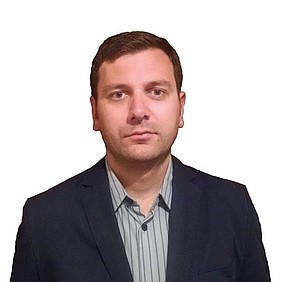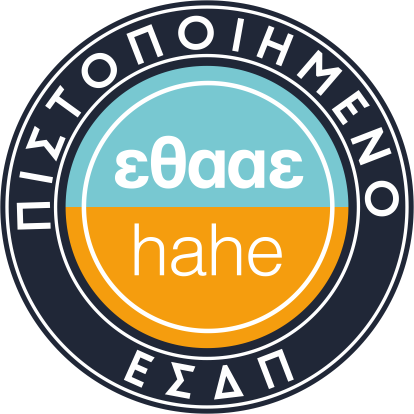Το Πολυτεχνείο Κρήτης και το Εργαστήριο Ψηφιακής Επεξεργασίας Σημάτων και Εικόνας (Display) σας προσκαλούν σε μια ανοικτή ομιλία-διάλεξη με θέμα
"Micro- and Nano- scale Optical Imaging of Biological Species and Advanced Materials:
Techniques and Applications at Politehnica University of Bucharest"
η οποία θα δοθεί από τον προσκεκλημένο ομιλητή
Dr. Stefan G. Stanciu
Politehnica University of Bucharest, Βουκουρέστι, Ρουμανία
στην παρακάτω ημέρα και ώρα
Τρίτη 30 Μαΐου 2023 | 15:00
Αίθουσα Συνεδριάσεων Σχολής ΗΜΜΥ, Κτίριο Επιστημών @ Πολυτεχνειούπολη
Η διάλεξη είναι ανοιχτή σε όλα τα ενδιαφερόμενα μέλη της Πολυτεχνικής Κοινότητας.
Περίληψη
Modern investigation frameworks used for the characterization of biological matter, advanced materials or devices rely on a wide variety high-resolution imaging modalities. Among these, optical nanoscopy techniques are gaining increasing interest, as their resolution capabilities can render significant breakthroughs in multiple key scientific domains, as highlighted by the 2014 Nobel Prize in Chemistry awarded for the advent of "super-resolved fluorescence microscopy". The Center for Microscopy-Microanalysis and Information Processing at University Politehnica of Bucharest (CMMPI-UPB) focuses on research devoted to the development of various applications of light and scanning probe microscopies in life and materials sciences, and to the development of novel microscopy/nanoscopy techniques. The design and implementation of digital image processing and data analysis methods represent important topics of interest as well, with microscope image enhancement and bioimage classification standing among the most prominent applications in this area. In this talk I will present a series of research results obtained in recent years by CMMIP-UPB in the frame of national and European research projects, discussing notable applications of several types of microscopy and nanoscopy techniques covering optical resolutions in the 500 microns – 1 nanometer range (e.g. Confocal Microscopy, Re-scan Confocal Microscopy, Second Harmonic Generation Microscopy, Two Photon Excited Fluorescence, Stimulated Emission Depletion Microscopy, scattering-type Scanning Near-Field Optical Microscopy, etc.). In this context, I will also highlight the advantages of a home-made prototype system for correlative multimodal imaging, capable to acquire registered images with distinct far-field and near-field microscopy/nanoscopy techniques based on complementary contrast mechanisms and operating at different scales. In the final part of this talk, I will provide an overview of recent work at CMMIP-UPB bridging artificial intelligence and bioimaging, highlighting as well potential avenues for collaboration between CMMIP-UPB and Technical University of Crete.
Βιογραφικό
Dr. Stefan G. Stanciu is currently conducting his research activities as a Senior Scientific Researcher / Research Project Leader at the Center for Microscopy-Microanalysis and Information Processing of Politehnica University of Bucharest (CMMIP-UPB). Stefan’ main research interests revolve around high- and super-resolution imaging by scanning laser and scanning probe microscopies. His current research agenda focuses on (i) optical characterization of biological species and advanced materials using correlative imaging approaches (ii) hardware (opto-mechatronics and electronics) developments and image processing techniques for high-resolution imaging at micro- and nanoscales (iii) development of novel machine intelligence frameworks for automated microscopy/nanoscopy data analysis. Stefan holds a PhD degree in Electronics, with his doctoral work (2007-2011, UPB) having addressed the development of digital image processing and computer vision techniques for enhanced visualization, representation and display of Confocal Scanning Laser Microscopy Data. Since 2022 Stefan holds a Habilitation Degree, supervising PhD studies in Physics. Among others, the scientific activities performed to date by Stefan have led to the publication of >80 articles published/accepted in Web of Science indexed journals (>25% as first or corresponding author), and over 30 ISI conference proceedings articles. He acted as Guest Associate Editor for Frontiers in Physics, Frontiers in Chemistry and Frontiers in Medicine, and is currently a Senior Editor for IEEE Photonics Journal and an Associate Editor for Frontiers in Photonics. Stefan reviewed manuscripts for over 30 journals including Advanced Materials, Small Methods, Journal of Biophotonics, Biomedical Optics Express, and others. To date, Stefan has gained valuable R&D expertise by participating in more than 30 Research Projects funded by national or European research grants. He was/is Principal Investigator/Partner Leader for over 10 grants, with a total budget > 2.5 mil EUR, including for two European collaborative projects funded under H2020 ATTRACT’s competition for breakthrough technology concepts. He is currently acting as Coordinator of a research grant funded by the Romanian Executive Agency for Higher Education, Research, Development and Innovation Funding (UEFISCDI) entitled: "Understanding Membrane Dynamics and their Implications for Cancer with Correlative Optical Nanoscopy and Artificial Intelligence" run in collaboration with Oslo University Hospital. Dr. Stefan G. Stefan has also acted as Management Committee Member in two pan-European Actions funded by the European Cooperation in Science and Technology (COST) organization: CA15124 "A new Network of European BioImage Analysts to advance life science imaging (NEUBIAS, 2016-2020)" and CA16124 "Brillouin Light Scattering Microspectroscopy for Biological and Biomedical Research and Applications (BioBrillouin, 2017-2021)", and currently serves as MC Member, Grant Awarding Coordinator and Work Group (6) Co-Leader of the COST Action CA19118 "High-performance Carbon-based composites with Smart properties for Advanced Sensing Applications" (ESSENCE, 2020-2024).
















